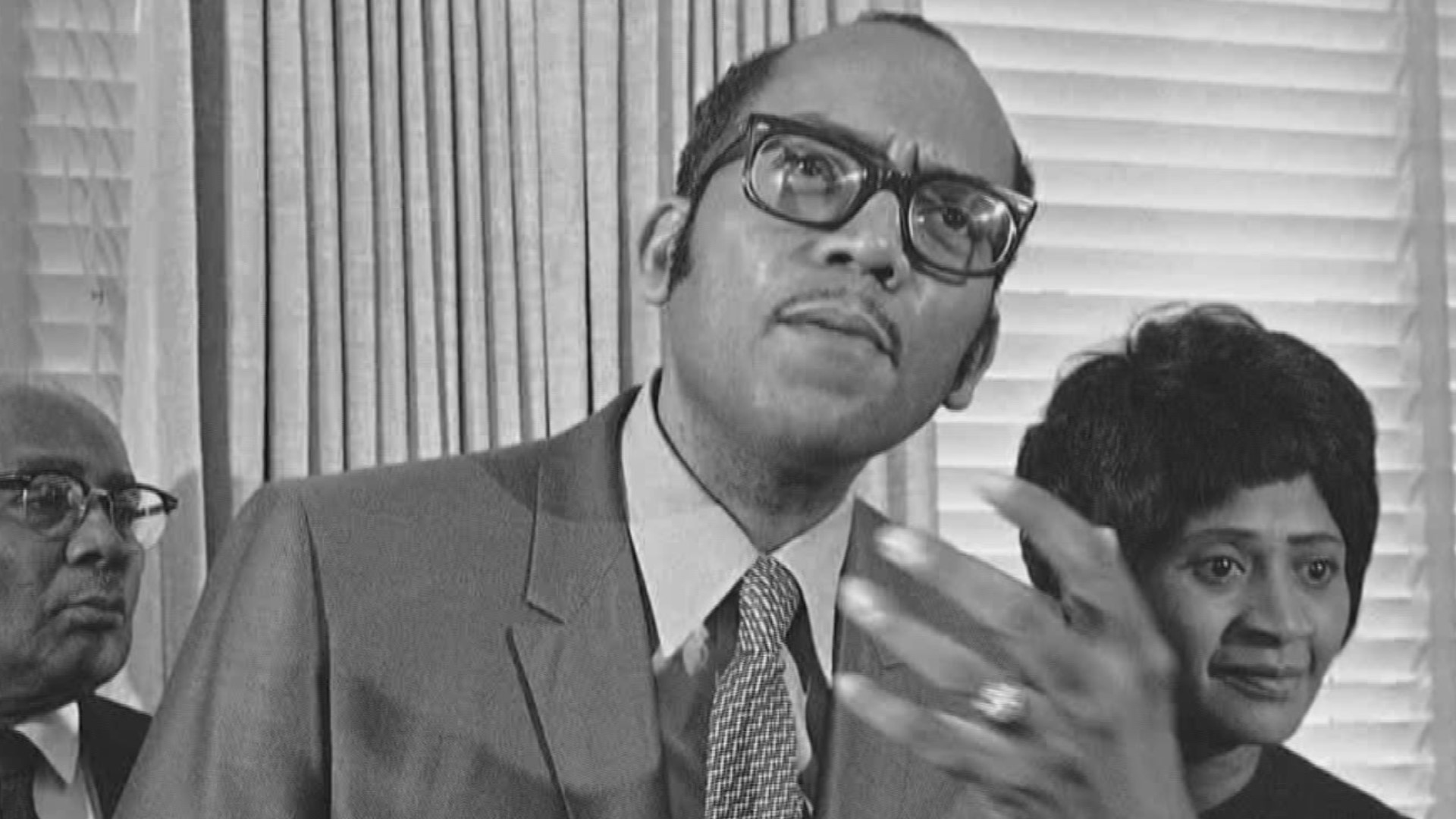ATLANTA — A civil rights and political trailblazer of Georgia has died, officials confirmed on Thursday afternoon.
Leroy Johnson, who was the first black state senator in Georgia after reconstruction, worked in the state for more than 50 years. According to a memorial statement from Mayor Keisha Lance Bottoms, he was a "groundbreaking statesman whose formidable presence in the Georgia Senate, two years before the signing of the Voting Rights Act, put equality into play in Southern politics."
Bottoms remembered how the civil rights leader and attorney used his position, abilities, and power to bring change to Georgia.
"He integrated bathrooms at the State Capitol and persuaded unwelcoming colleagues in the General Assembly with his combination of discretion, persistence and a winning sense of humor," she said.
11Alive's own Jeff Hullinger retold the famous story of how he would desegregate the Georgia Capitol.
"His first day inside the capitol there were drinking fountains and restrooms separated by race," Hullinger said. "He had his pages use the 'white' restrooms and drinking fountains. Shortly after, Governor Carl Sanders removed the signs."
According to the University System of Georgia's Civil Rights Digital Library, Johnson served in the Georgia State Senate from 1963 until 1975. He was also a graduate of Morehouse College and Atlanta University who earned a law degree from North Carolina Central University.
Before his political career, Johnson was a social science teacher in the Atlanta school system from 1950 to 1954. In 1957 he broke another barrier becoming the first African American hired by the Fulton County Solicitor General's Office.
The Civil Rights Library adds that he was also an adviser to the civil rights movement in Atlanta and was active in community affairs. He was also a mayoral candidate in 1973.
But his actions also had memorable impacts on the national stage as The Rev. Jesse Jackson reminded his followers on Twitter, Thursday.
"He alone used his skills to get @MuhammadAli back in the ring," Jackson said, adding that other cities and states turned him down. "All MuhammadAli fans, the world over are in his debt."
Johnson spoke to Hullinger about securing the comeback fight in 1970.
"Senator Johnson said most states wouldn’t deal with Ali because of his Vietnam stance and refusal to be inducted into the army," Hullinger said. "Ali told the senator that he was forever grateful."
MORE HEADLINES

